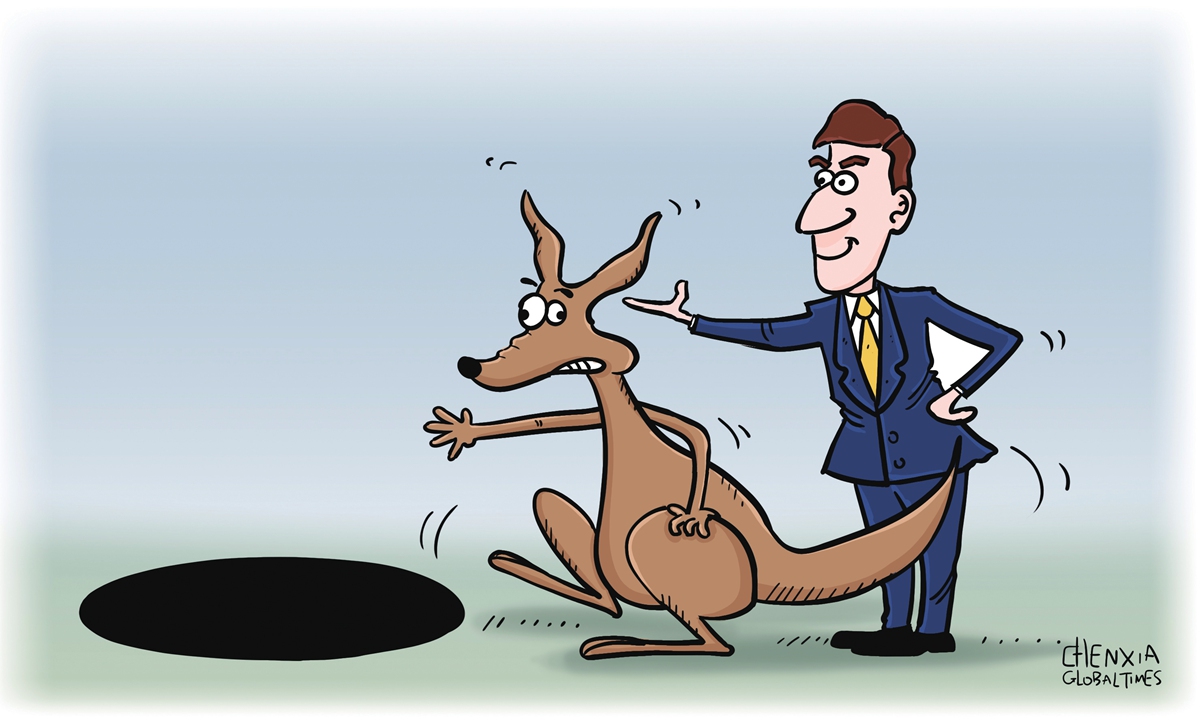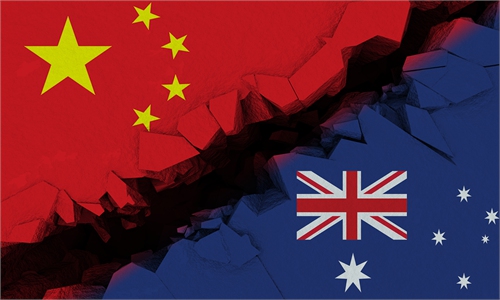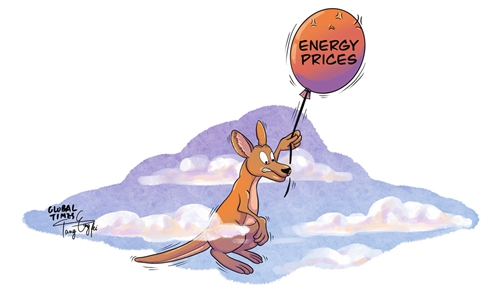
Illustration: Chen Xia/GT
An Australian Department of Defence review has reportedly found no national security grounds to recommend the federal government overturn the 99-year lease of the Port of Darwin to Chinese company Landbridge, Australian media outlets report on Wednesday.
The result of the review has to some extent proved the innocence of the Chinese firm's Darwin Port lease. The 99-year lease is only a commercial contract. In recent years, Darwin's military value to the US and Australia has increased, along with the attention paid to the port. More importantly, with ties between China and Australia deteriorating, Canberra is politicizing and maliciously hyping almost all China-related issues. The Chinese firm's Darwin Port lease is a symbolic example.
The agreement was signed between China's Landbridge and the Northern Territory government back in 2015. The Australian federal government is politicizing and interfering more with the local government's cooperation with China. For example, the Australian federal government tore up Victoria's Belt and Road agreements with China in April. And in May, Prime Minister Morrison asked for an urgent review of the Port of Darwin agreement. Many of Australia's hawks played a big role in such moves.
When reporting the news, the Daily Mail, a British media outlet, published an article, "Why Australia may NEVER get the Port of Darwin back from Beijing as bureaucrats find there is 'no national security risk' to the deal - despite China trying to tank the Aussie economy." Such rhetoric is an attempt to drive a wedge between China and Australia. The UK has made a lot of progress in ramping up cooperation with Australia this year, including signing the AUKUS deal, in a bid to contain China's rise. In this context, some forces in Britain may be reluctant to see any positive cooperation between China and Australia.
The rhetoric also reflects the mentality of certain forces in Australia, especially the anti-China hawks. The Australian noted on Tuesday, "The review is understood to have disappointed China hawks who were hoping the review would trigger a reversal of the decision and allow the government to unpick the lease arrangement."
After Australian Department of Defence released the outcome, anti-China hardliners should have no more reason to hype anti-China sentiment via defense or military excuses. But national security is a broad concept, allowing forces to find another excuse. According to Australian media outlets, the government is still reviewing the case. Australian anti-China hawks have a radical attitude toward China. The case may have failed to develop as they expected. It remains to be seen whether they will find other excuses to attack China or even pile pressure on their government to cancel the deal, so we should be vigilant.
Australian's views on China are much divided. But the anti-China hawks' loud and frequent slander toward China has misled Australia's public opinion. There are both domestic and international reasons why anti-China hawks have the upper hand in Australia. Many of these hawks come from security sectors like national defense, intelligence or national defense-related think tanks such as the Australian Strategic Policy Institute. They profit by hyping the so-called China threat. Meanwhile, by virtue of China-US competition and Australia's closer military cooperation with the US, these China hawks can also win the US' favor by hyping the "China threat" and may benefit from Washington.
In terms of guiding Australian public opinion, these hawks have played a bad role. The foundation of China-Australia relations is sound, but the anti-China hawks have always been hyping the "China threat" and misleading the public. They should bear a large part of the responsibility for the precipitous drop in China-Australia relations.
The article was compiled based on an interview with Guo Chunmei, an expert on Australian studies with the China Institutes of Contemporary International Relations. opinion@globaltimes.com.cn



